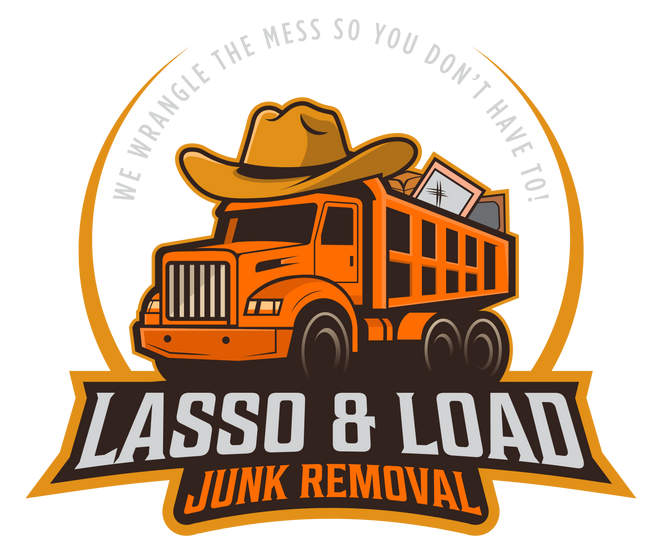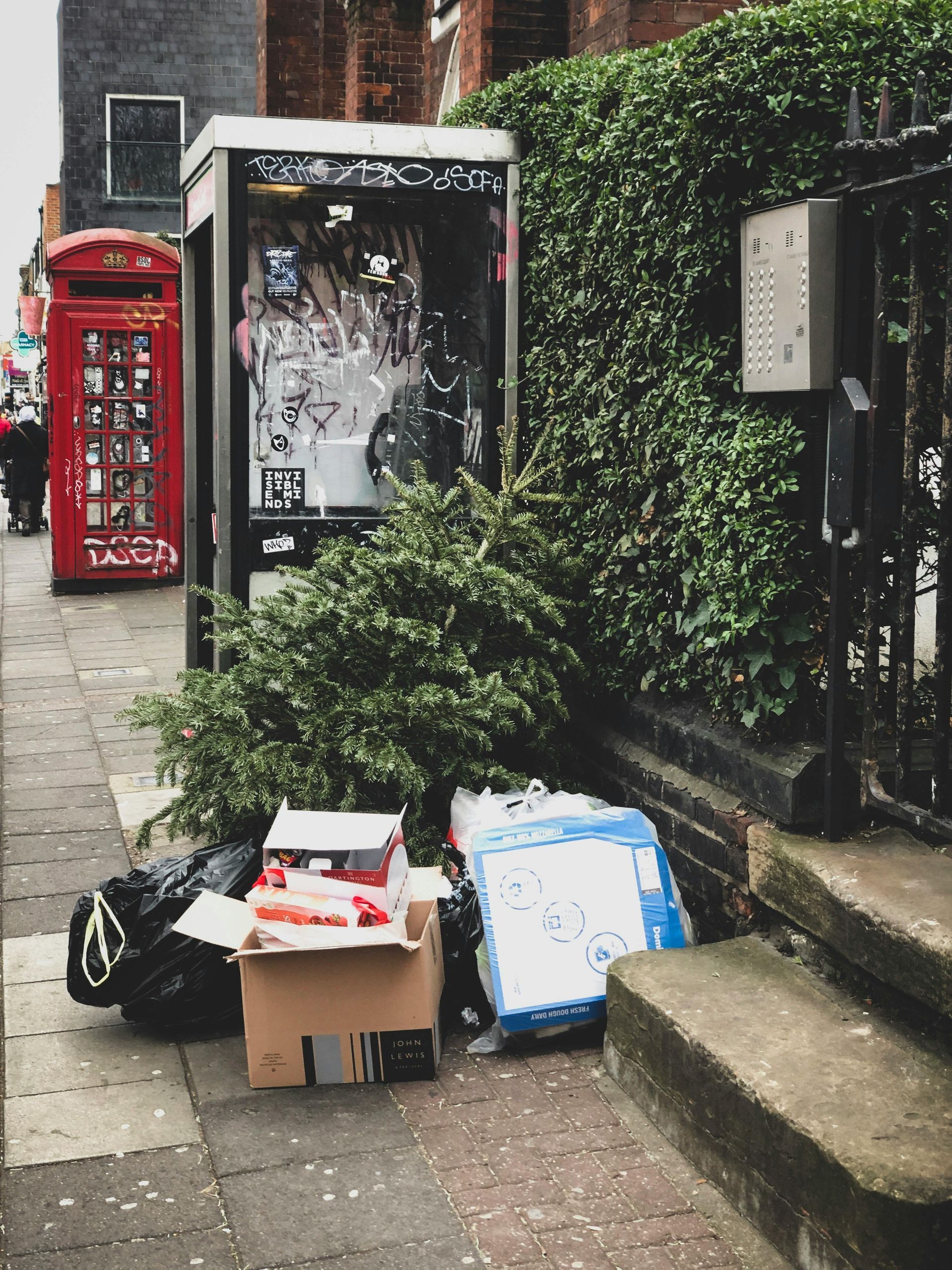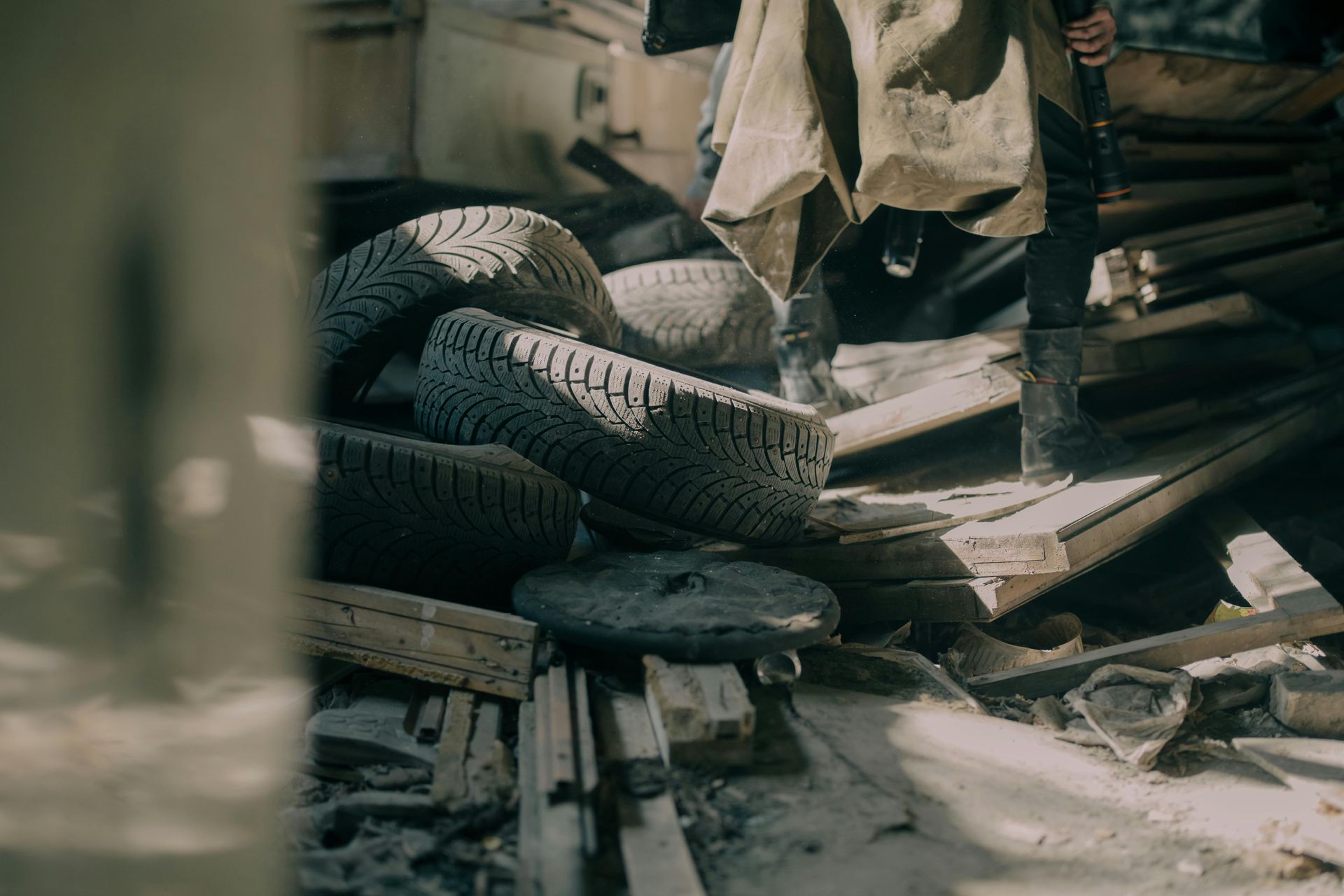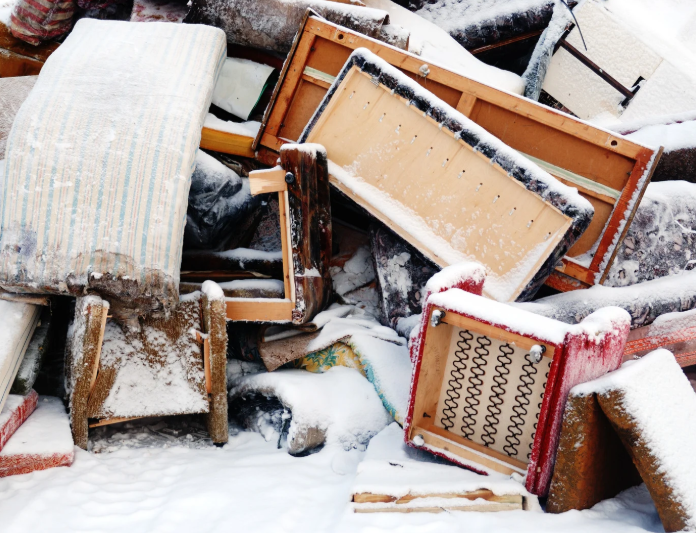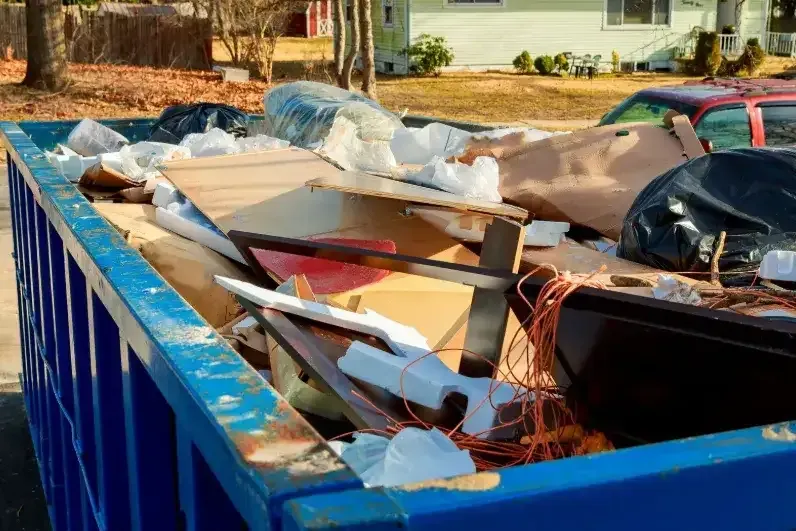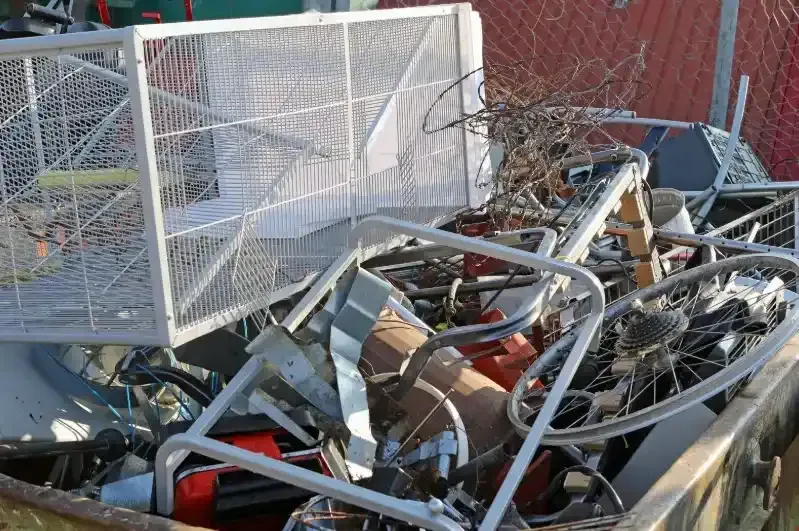The Key Environmental Benefits of Scrap Metal Removal
When it comes to recycling, scrap metal removal plays a pivotal role in reducing waste and conserving valuable resources. It’s far more than just clearing out unwanted metals; it’s a crucial environmental effort that can have a lasting impact. Scrap metal removal helps decrease pollution, save energy, and significantly reduce landfill waste. By recycling metal, we not only prevent harmful materials from filling our landfills, but we also minimize the need for raw material extraction, a process that consumes energy and natural resources.
Recycling metals like aluminum, copper, and steel takes significantly less energy than producing new metals, which means fewer greenhouse gas emissions and less environmental degradation. Additionally, scrap metal recycling helps conserve precious natural resources, such as timber, water, and minerals. As we continue to make sustainability a priority, scrap metal removal stands out as an essential practice that contributes to a cleaner, healthier planet for future generations.
Reducing Landfill Waste and Conserving Space
Landfills are becoming increasingly overcrowded, with waste piling up each year. One of the most significant environmental benefits of scrap metal removal is the reduction in the volume of waste sent to these landfills. Metals, especially heavy metals like lead and mercury, can take hundreds or even thousands of years to decompose. This means that scrap metal, when left in a landfill, not only occupies valuable space but also contributes to long-term environmental harm. By recycling these metals, we are diverting them from landfills, effectively reducing their negative impact on the environment.
When scrap metal is removed from homes and businesses, it is processed and reused, allowing valuable landfill space to be preserved for materials that cannot be recycled. This simple yet powerful action alleviates the strain on waste management systems, making them more efficient. It also ensures that landfills are used as a last resort, rather than the default destination for all waste materials. By recycling metal, we help minimize the overall environmental footprint of waste disposal.
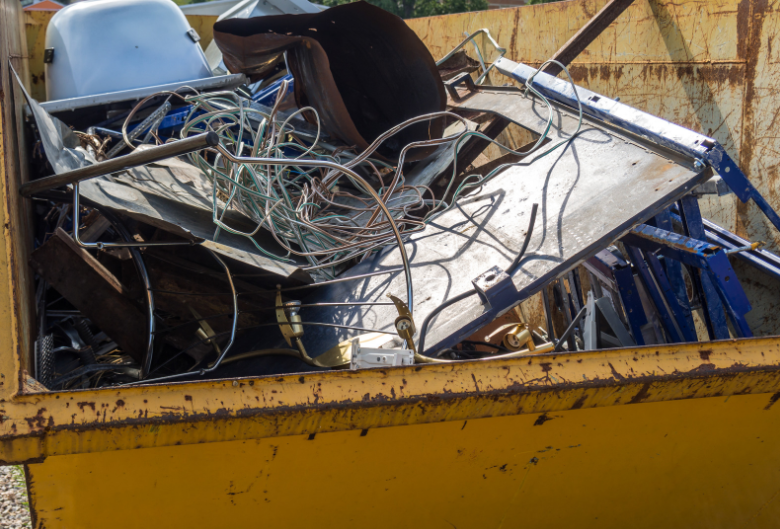
Conserving Natural Resources
Scrap metal removal plays a crucial role in conserving our planet’s precious natural resources. The mining of metals such as copper, aluminum, and steel is an energy-intensive process that demands large quantities of water, land, and energy. These operations also often lead to the destruction of ecosystems and wildlife habitats. By recycling scrap metal, much of the energy and resources required for new metal production are saved. For example, recycling aluminum saves up to 95% of the energy needed to create aluminum from raw bauxite ore.
In addition to energy savings, recycling metals helps reduce the need for mining new raw materials, further protecting fragile ecosystems and preserving natural habitats. Through scrap metal recycling, we not only minimize the environmental damage caused by mining but also create a more sustainable use of resources. The impact of these conservation efforts is significant, as it ensures that valuable materials are available for future generations, contributing to a more environmentally conscious world.
Lowering Carbon Emissions
The manufacturing of new metals from raw materials is an energy-intensive process that produces a large amount of carbon dioxide and other greenhouse gases. These emissions contribute significantly to climate change and environmental degradation. In contrast, recycling scrap metal requires far less energy and significantly reduces the carbon footprint of metal production. For example, recycling just one ton of steel can save up to 1.5 tons of carbon dioxide emissions compared to producing new steel from iron ore.
By engaging in scrap metal removal, we are directly contributing to the reduction of greenhouse gas emissions. The lower energy demand associated with recycling metals ensures that fewer fossil fuels are burned in the production process, reducing air pollution and mitigating the impact of global warming. Scrap metal removal is a critical step in our collective effort to fight climate change and transition to more sustainable practices.
Energy Savings
Energy consumption is a major concern in today’s industrialized world, especially given the high demand for resources and the environmental impact of energy production. Metal production is one of the most energy-intensive industries, as extracting raw metals from the earth and processing them into usable products requires vast amounts of energy. However, scrap metal removal offers a much more energy-efficient solution. Recycling metals uses significantly less energy compared to producing new metals. For instance, recycling aluminum uses up to 95% less energy than producing it from bauxite ore.
This reduction in energy consumption not only conserves valuable energy resources but also reduces the need for power plants to burn fossil fuels, which contributes to air pollution and environmental degradation. By supporting scrap metal removal, you are helping decrease the overall demand for non-renewable energy sources, such as coal and natural gas. Recycling scrap metal, therefore, not only conserves energy but also reduces the environmental impact associated with the extraction and consumption of energy, leading to a cleaner, more sustainable future.
Preventing Soil and Water Pollution
When metal waste is left in the environment, it poses a significant threat to soil and water quality. Metals such as lead, mercury, and cadmium, which are commonly found in discarded electronics, batteries, and other scrap materials, can leach into the soil and contaminate groundwater. These substances are highly toxic, posing severe health risks to humans, animals, and plant life. The long-term effects of soil and water contamination can result in ecosystem degradation, affecting biodiversity and public health. By properly recycling scrap metal, these harmful materials are safely processed, ensuring they do not enter the environment.
Moreover, improper disposal of metal waste in water bodies can lead to serious pollution issues, harming aquatic life and disrupting the balance of ecosystems. Whether it’s old appliances, cars, or metal debris from construction projects, when these materials are discarded improperly, they can have lasting detrimental effects on the environment. Recycling helps prevent these hazardous substances from reaching our water systems, safeguarding both the environment and public health for future generations.
Supporting Local Economies
The recycling industry plays a significant role in local economies by providing employment opportunities and supporting sustainable industries. Millions of people are employed in the collection, sorting, and processing of recyclable materials, including scrap metal. By supporting scrap metal removal, you not only help reduce environmental pollution but also contribute to the local economy. Many communities have developed scrap metal collection and recycling centers that offer jobs, stimulate the economy, and reduce reliance on non-renewable resources.
Additionally, recycling scrap metal helps reduce the cost of manufacturing new metal products. By recycling metals, manufacturers can obtain raw materials at a lower cost than mining and processing new metals. This reduction in production costs can be passed on to consumers, benefiting both businesses and customers. As a result, scrap metal removal supports local industries, promotes economic growth, and creates jobs, making it a win-win for both the environment and the economy.
Encouraging Sustainable Practices
Scrap metal removal encourages a culture of sustainability, inspiring individuals and businesses alike to be more conscious of the resources they use and how they manage waste. When people realize that recycling metal is not only easy but also beneficial for the environment, it can motivate them to adopt more sustainable habits in other areas of their lives. For instance, many people begin to reduce energy consumption, embrace renewable resources, and minimize waste once they understand the positive impacts of recycling.
This shift in mindset extends beyond just metal recycling; it helps foster a greater sense of environmental responsibility across multiple sectors. As individuals and communities begin to take responsibility for their waste, they contribute to reducing the global environmental footprint. Recycling scrap metal, while an important step, is just one part of the broader movement toward sustainability. It encourages conscious consumption, careful management of resources, and the protection of our planet for future generations, supporting a cleaner, greener world.
Reducing the Need for Land-Consuming Mining Operations
Mining for metals is an intensive process that requires large amounts of land, often leading to deforestation, habitat destruction, and soil erosion. The extraction of valuable metals like copper, gold, and iron ore not only consumes vast amounts of land but also has significant negative effects on local ecosystems. By recycling scrap metal, we reduce the demand for new mining operations, which helps prevent the destruction of natural habitats.
Each ton of scrap metal recycled can significantly reduce the need for mining new metals, preserving critical habitats for wildlife and preventing further damage to ecosystems. As mining operations continue to deplete natural landscapes and contribute to environmental degradation, recycling scrap metal becomes an essential strategy for minimizing the ecological impact of metal production.
Conclusion
Scrap metal removal is an often-overlooked but critical component of environmental sustainability. By recycling scrap metal, we can reduce landfill waste, conserve valuable resources, lower carbon emissions, and prevent pollution. These benefits contribute to the fight against climate change, promote energy savings, and reduce the harmful effects of mining and metal production. Engaging in scrap metal removal not only clears out unwanted items but also plays a crucial role in safeguarding our planet.
By choosing to recycle your scrap metal instead of sending it to a landfill, you’re taking a step toward a more sustainable future. Your efforts ensure that valuable resources are used more efficiently, benefiting both the environment and the economy. For more information or to schedule your scrap metal removal, don’t hesitate to contact Lasso & Load Junk Removal. We make the recycling process simple and efficient, helping you dispose of your scrap metal in an environmentally friendly way. You can reach us at Lasso & Load Junk Removal in Gwinnett Co at 404-227-2017 or via email at Lauren.renwickk@gmail.com.
